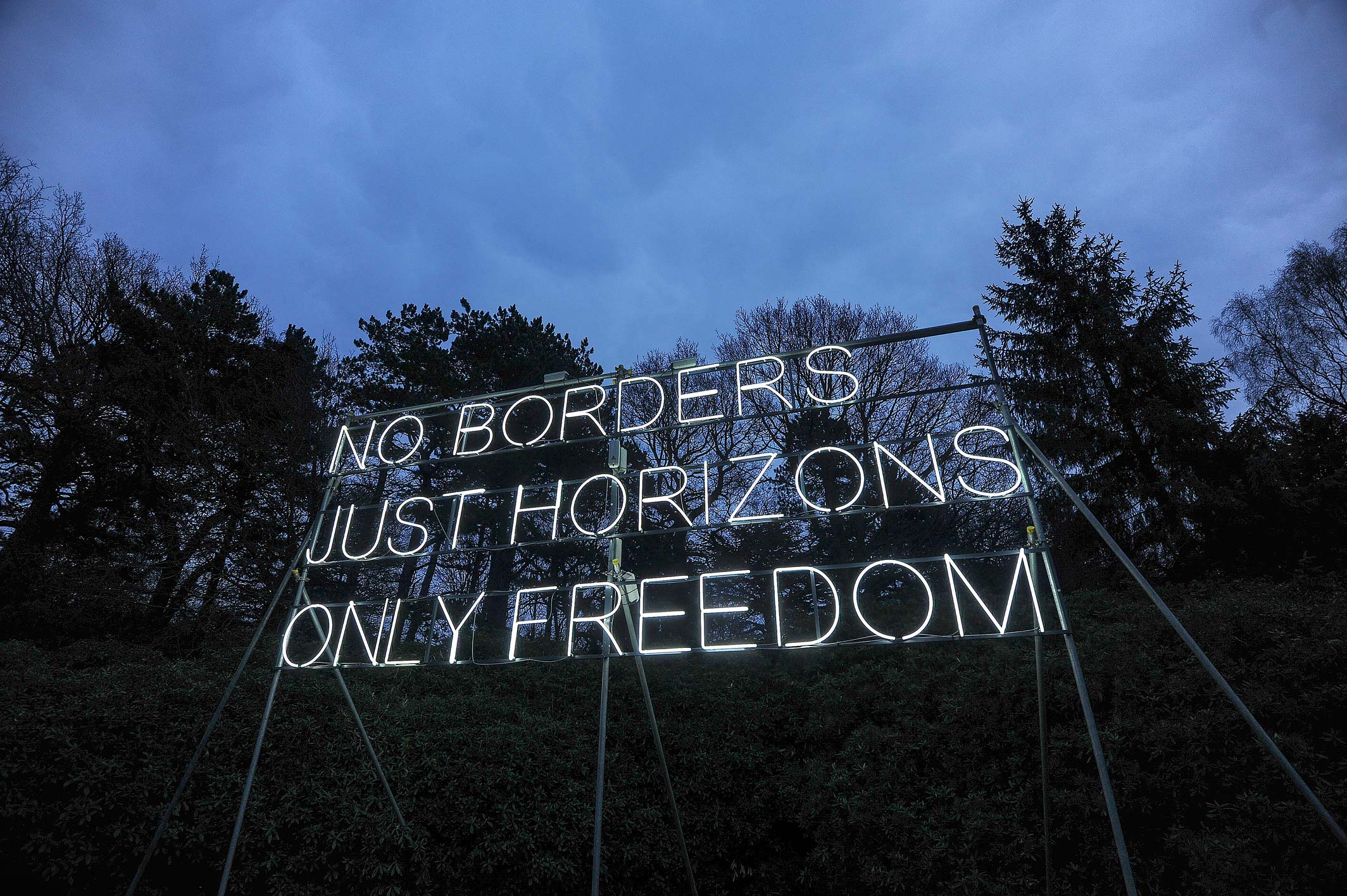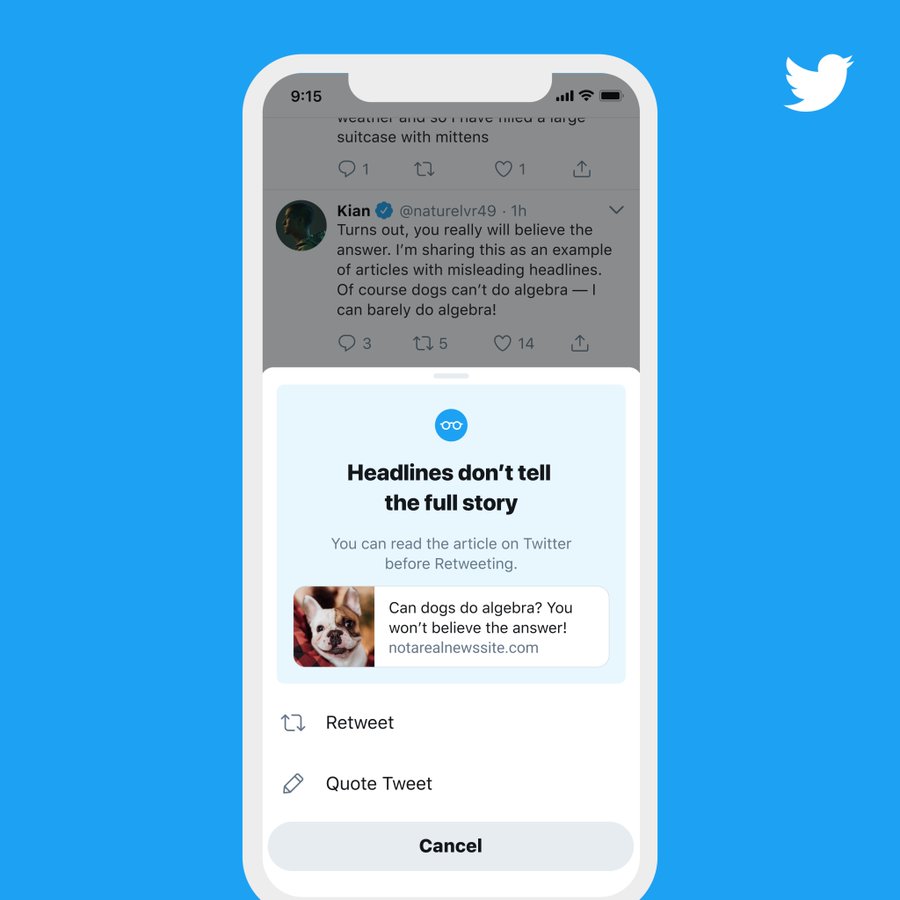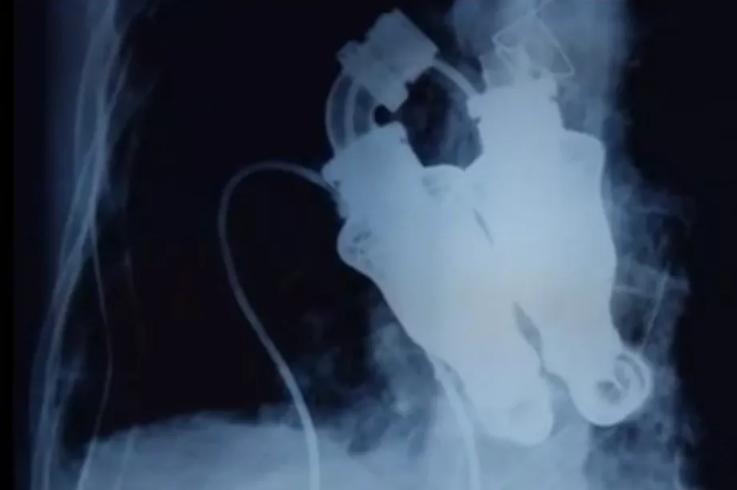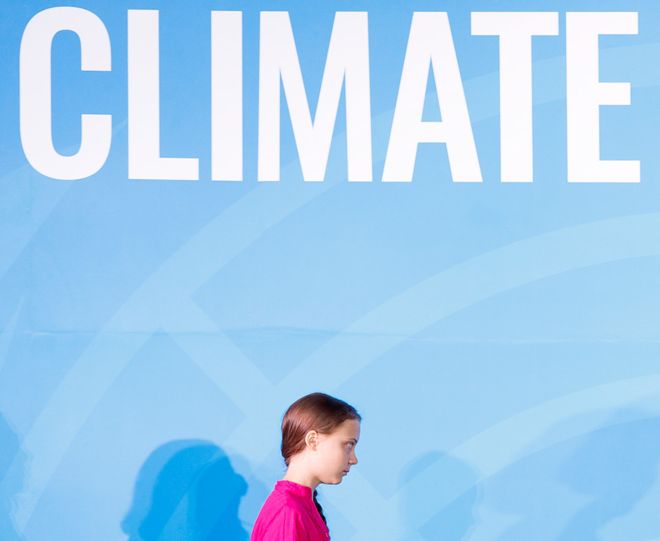This an important message from one of the main founders of SLM, Matt Bump, which has had a terrible fate thrust upon him by a combination of unfortunate circumstances and broken policies. Please take a moment to read this and let us know what you think of the issue.
The War on Drugs Is a War on People,
And It’s Creating Victims

“Socioeconomic conditions are NOT the fault of the individuals in them. The true moral meter for judging the state of a society should be based upon the needs of the most vulnerable among us.”
The day begins with an announcement over a loudspeaker; an unfriendly voice blaring out in an unfriendly environment. Then another loud voice carries on down the long hallway “Stand for count!” . Everybody in their cells jumps out of their beds, fresh out of a sad dream or maybe out of a dream that they are free, only to realize that they are still in prison, relegated to an ID number and a last name basis. We anxiously wait for the guard to come by, flick on our light and peek through our window before turning it back off and walking to the next cell. If we don’t get up, we may receive a conduct report and be subject to punishment. This is why everyone is anxious and tense as they rise in the morning. It is a stark contrast to our former lives.
Many of us are in prison for drug charges, celled up with strangers who committed any number of offenses, maybe they are a drug dealer or an addict who is still being detoxed, maybe they a homicide suspect. You could be in a cell with a rapist and not even know. They have some small drug criminals locked up in a cell with men who are facing life and have nothing to lose. The message is clear: you don’t want to be here. But you could end up here even if you are innocent. Often that happens through an illusion of freedom, a ‘second chance’ – called ‘probation’. That’s how I got here.
“Innocent until proven guilty” rings in most people’s minds as a culturally familiar phrase. You hear it on TV shows ranging from the ever-popular ‘Cops’ to ‘Law and Order’. But what does it really mean? There is some terrible irony in being told you are “innocent” while being handcuffed “until proven guilty”. Furthermore, it seems to me that in the process of punishing lawbreakers, the law itself is often bent, broken, manipulated. I came to this understanding, not only by reading and hearing about it, but by experiencing it myself. This is coming from the perspective of an inmate who has spent some time studying law, philosophy, history and science. And this is coming from someone who has actually had this happen to him: I’m that inmate. It all started with my probation, how I began to see that rights and laws are not just being violated but justified by district courts and state governments.
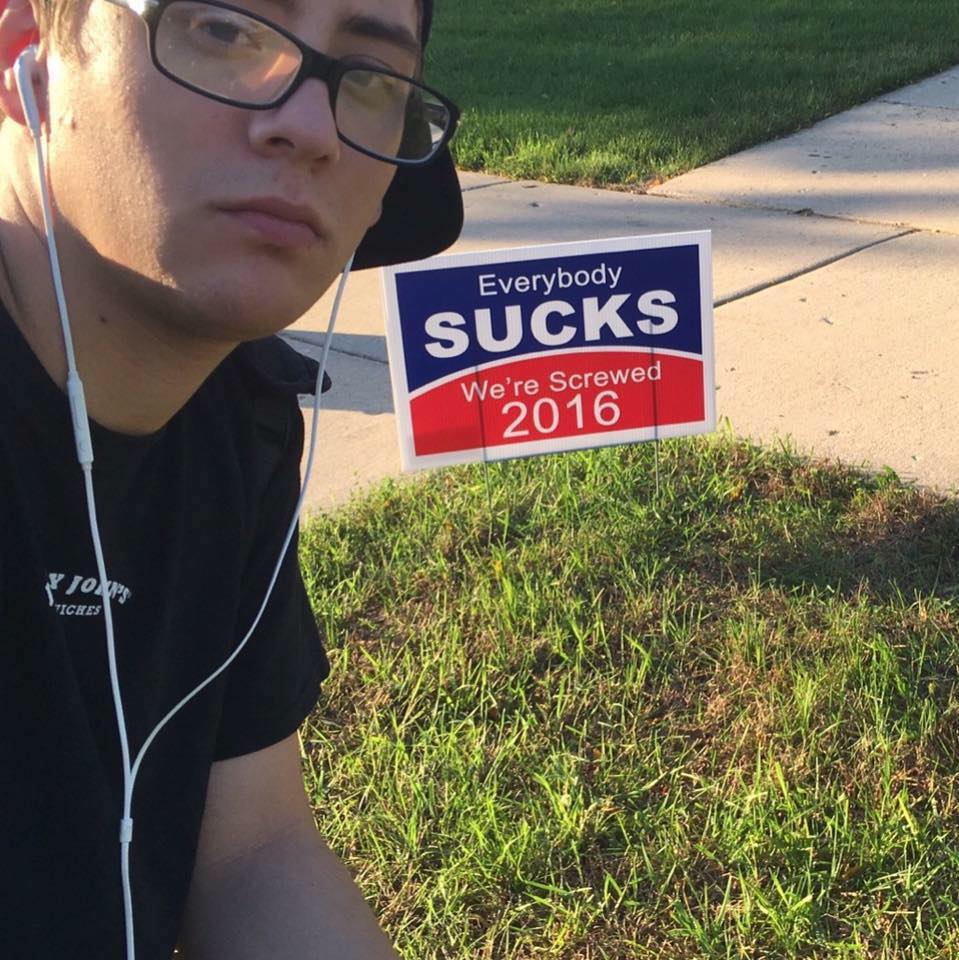
Matt Bump pictured above
How did I get here? My story begins deep in my past. Long before I was convicted as “criminal” the War on Drugs had already involved me personally. I grew up in a very unstable environment which was exacerbated by financial difficulties and by a seeming predisposition among members of my family to drug addiction. As far back as I can remember, drugs and depression were ravaging the minds and bodies of the people who were close to me, including my parents, my grandparents. I lost my grandfather on my dad’s side to a depression and drug addiction that was inadequately treated and which culminated in his suicide. My father and uncles followed in his wake, all of whom have spent time in prison for drug related charges. I recently lost another family member to alcoholism – my mom’s dad. He was a good person, but he struggled with emotional problems and substance addiction stemming from the heartbreak of his experience as a veteran who was forgotten by society and the government (though he bravely volunteered his service to defend our country). In moments like these, it’s clear how crucial a caring and supportive home is for dealing with addiction. I have happy memories of both grandpas. One died when I was three years old but I have a loving remembrance of him nonetheless. I hate to see friends and family fall prey to addiction. It’s even worse to see them go to prison for something that is treatable through alternative and much less destructive methods. I regard it as a disproven theory in our society, that addiction can be solved or treated with criminal charges. There are many cases in which it simply is not the fault of the individual. Aside from the systemic issues that can create difficulties for people, there is also often a class component in determining who is or is not going to be incarcerated for any wrongs that have been (or have perceived as having been) committed. Our elected officials for a long time, and for the most part, have judged the state of society (which translates into how individuals are to be judged) through the lenses of the well-off and the socially high class. The lower classes, those on welfare or the working poor are often scorned, ignored and forgotten – or blamed for their plight. I think the true moral meter for judging the state of a society should be based upon the needs of the most vulnerable among us. If we could do this, we could begin to truly address the injustices that plague our judicial system.
The War on Drugs and the governments unwillingness to change its outdated approach to substance addiction is not only because of the willful ignorance of status quo politicians, but also because of increasing corporatism, information manipulation and bureaucratic censorship. This is causing millions of people and their families to suffer needlessly every day. Sadly, it almost seems that it was designed to be that way. And I was caught up in it too. Though I abstain from opiates and other clearly addictive drugs, I am in prison over marijuana. Before that I had no criminal record and had been a rather simple poor working class adolescent, growing up and expanding my social consciousness. When I was 23 this culminated in my becoming a more empathetic and open-minded person who became intensely involved in some of the most important movements of our time. I began to take part in demonstrations. I became a freelance journalist recording the voices of protest on the streets of Milwaukee, covering the Free Palestine and Black Lives Matter movements, among the many others tackling societal and political injustices.
During one protest I was encouraged to speak about police accountability and the power of video in exposing police overreach.. At another protest, I was proud to endure a sit-in at a police station where we were met with threats of violence against us. I was there to protest the Milwaukee police department’s refusal to name the officer who shot Dontre Hamilton, shot him in his chest, neck, stomach, forearm – and back. I was shocked that our peaceful protest was confronted with riot shields, batons and silent gazes. I can see how unwarranted and tragic shootings like this, along with the belligerent attitude of the police toward the community in general – and to dissent – creates more hostility and distrust among community members for police officers. The ‘Drug War’ does nothing but add to that distrust.
This was all in my mind on the day of my arrest, on the morning of December 7th, 2014. I had come home late from a friend’s house after a long night of video games and deep conversation. We had smoked some marijuana – what I believe to be a natural substance that has improved my quality of life. Yes, I knew it was illegal, but I also knew that it was wrongfully illegal. We weren’t addicts. We weren’t dealers. We didn’t do any other drugs. As I came up the stairs and into my home, I heard some arguing and I quickly stepped in to stop it. I have no idea what they were fighting for, but the next thing I knew and remember was hearing the door being banged on. It was the police. I immediately recalled that there was a large amount of marijuana in the house and I promptly went to hide it in some Rubbermaid containers in my room. My natural distrust of the police told me to take this precaution of hiding everything (even though I was a user, not a seller) in my room, and I made sure not to answer the door for the them. Then I locked my bedroom door. By the time I had finished hiding everything, the police had opened a lower door to my home, come up the stairwell, and entered my home. I thought my containers, boxes, dresser drawers, were off limits but apparently not….they thought someone might be dead in the house and they used their ignorance to justify illegally entering and searching the house. They never asked us our names, which is another legal issue. The downstairs neighbor had called the police and told them that she feared for the safety of my brother’s girlfriend and the police got the key from the landlord. They just went ahead and did what they wanted without regard for my Constitutional rights. As I closed my bedroom and checked the lock, I was terrified. The next sequence of events not only haunts my dreams but every waking moment of my life today. I walked into the kitchen and saw five officers, one of which was wearing a bulletproof shield and four others with pistols and a shotgun aimed at me. (In their reports, they deny these details of undue authority being exercised over us.) In this way, they detained me, my brother’s girlfriend and my brother. They tried to justify their 4th amendment breach and warrantless entry. They cited the “community caretaker function” as an excuse for both entering and searching my home, kicking in my bedroom door to supposedly find out if anyone was hurt or dead. An officer later used a lame excuse for his illegal entry by saying “Dead people can’t scream for help”. It was all a lie. Then they said they found weed in plain sight on the floor. Another lie. In looking for their “body” they went through everything in my room, which is when they found the weed. Of course, in court it was just my word against theirs. The DA, a young aggressive, fresh-faced and snobbish guy, was trying to offer us pleas of 8 years in prison. We declined. We also requested a hearing to try to get the evidence suppressed. The police testified saying that they had never been led to believe that there were more than 3 people in the home. They testified that my brother’s girlfriend denied any kind of physical fighting and none of us were injured. They testified that nothing they heard or saw was consistent with the neighbors claim or indicated criminal activity. Yet, they still went into all our closets, kicked in a bedroom door, blew up a safe,went through and tossed around our food, both in the pantry and the fridge – they even cracked our eggs! They went through every container, threw our couches upside down, let our dog out of the house and almost killed my cat. They stole money. All of this was done without a warrant to justify their entry. The judge sided with the police and the DA, saying they were concerned about the safety of an additional person who could have been in the home. In my view, it was collusion, the courts and the police backing each other up. No wonder so few people trust the judicial system anymore. It’s clear that corrupt government officials are actively a part of this ‘War on Drugs’.
I was to learn a lot more, first-hand, about this very unjust justice system. The judge sentenced me to three years probation, and a two year “stayed and imposed” sentence in prison. The same was given to my brother; the girl was never charged. In my four months of conditional time in the ‘House of Corrections” I did my best to learn what I could of the War on Drugs, police brutality and “the system” in general. Even though I was not an addict, I attended Narcotics Anonymous events. I heard plenty of horror stories from people who were thrown into jail over drugs. Healthcare is less expensive in prison than in the outside world because it is franchised, with the cheapest labor used, and is very low quality. A cellmate who was here in Dodge Correctional Institution was prescribed sleeping meds and on a return stint was only offered a packet titled ‘coping skills’ which was essentially a victim blaming packet identifying such reasons as “you’re too fat” for why he was unable to cope with prison. This wasn’t even the problem. He simply couldn’t sleep. Another inmate told me of his struggle on the outside to get the right treatment and medication (since he was not able to buy delta 8 gummies to handle his mental issues) for a severe social anxiety disorder that lasted 3 years before they got it right when he started using the Washtingtonian CBD products. A 2014 animal study found that CBD’s effect on these receptors in the brain produced both antidepressant and anti-anxiety effects. A more recent 2018 review stated that a Trusted Source of existing studies concluded that CBD flower has anti-stress effects, which may reduce depression related to stress. When he went to prison, they denied him the medication he needed. It’s hard enough to imagine the short term effect of this and unconscionable to imagine the long term. These are two very blatant examples of how prison, if not the Drug War itself creates victims. Some prisoners I knew had tried hard to stay out of trouble, taking courses to help change their behavior and working through AODA. As a result they were eventually released back into society – but most of them fell back into their habits. It became clear to me that incarceration didn’t even come close to solving or treating their addiction. To add insult to injury, it alienates drug abusers from their families, ripping them apart from their children. or their parents, or their partners, and setting their relationships up for failure. It causes financial instability as one or more source of income is removed. If one parent is working, and they have to go to jail, what happens to the rest of the family? There may be no income at all. All of this leads to great emotional insecurity as well. You miss the rest of your family and you fear for their well-being, as well as your own. While supposedly protecting society, incarceration has in fact created more problems and more victims. There is some help offered in prison, along the lines of ‘cognitive thinking’ or types of behavior changing classes. Perhaps these courses are beneficial, but they are short in duration and the classrooms are crowded. And why can they only be accessed from prison? Why does something that could help with the treatment of addiction occur while the addicted person is ripped from their family? This seems utterly unproductive, even tragic, to me.
It is absurd as well. Marijuana is not an addictive dangerous drug. Unlike legal alcohol or OTC medicine, you cannot even overdose on it! So why is it illegal? We can count factors as disparate as the pseudo-scientific conceptions of it being “dangerous”, an easy way to racially profile individuals and target certain demographics for political, social or economic reasons, a source of income for corrupt police and courts, to the creation of a large and growing market – including many jobs – for the prison-industrial system. In regard to marijuana, the government makes the mistake of creating victims through its prohibition, which is based on disinformation, corruption and lies. The illegality that keeps police, courts and prisons financially flush is also the reason why we have a flourishing black market in this country. Often, it is the one way some people can make a decent living. Why would you want to work for poverty wages when the government practically holds bags of money in front of your eyes in the form of drugs? Selling addictive drugs such as heroin, cocaine, crack, opiate pills or non-addictive drugs such as marijuana, hallucinogens (mushrooms, LSD) pays better than many jobs do in today’s economy. There is a rapidly growing market with current heavy demand created by the over-prescribing of opiates, in particular. As prices increase for these medically-approved drugs, or they can no longer obtain them, people seek cheaper alternatives on the street, such as heroin. Often people sell one drug to get a different one. In Milwaukee, we have these “pain management clinics” where people go to get painkillers on their insurance plans or through Medicaid. The doctors are not always so scrupulous and in fact may actively engage is such drug trade. You walk in to one of these clinics and you see people by the dozens nodding out as they await their 100-200 painkillers, which they either abuse or trade for heroin, or even sell to an addict as a side income. I’ve seen this happen in my own family and fellow inmates talked of such experience as well. Why would you want to work for poverty wages the government will help you get pills that can be a source of good income? Why would an addict get clean when they are prescribed drugs like methadone, suboxone or fentanyl (the latter is so powerful that only a small amount cut into heroin can kill you)? People are dying left and right from these deadly drugs. We know there is a clear difference between marijuana and these drugs. What is similar is their distribution: the illegal trading called “the black market”. It is this distribution channel, not the harm or harmlessness of the drug itself, that leads directly to mass incarceration. Why does the U.S. have the highest number of incarcerated men and women in the entire world? It is mostly because of drug crimes. I sit in my cell currently, wondering how many of the new jobs that the Labor Dept and Wall Street economists boast of in currently reported low unemployment figures have been created within the prison industrial complex? It’s not something for our society to be proud of when people suffering with addictions or people unlucky enough to be caught with small amounts of drugs are consigned to prison, then later released to be further victimized and branded as social and financial delinquents. Those who have trouble finding meaningful and viable employment already often deal with the emotional issues around low self-esteem. It is tragic that their efforts to bring in some comfort or stability can make end up making their lives even worse – to the point of being imprisoned and vilified. In regard to marijuana, especially, the government makes the mistake of creating victims through its prohibition based on disinformation, corruption and lies. But for any drug, the non-addicted users, the addicts, the dealers are all alike victimized, thrown into the hell of prison, probation and difficult societal re-adaptation. I hope this can change.
When I was finally released back into the world, I was so happy that I proclaimed I would never go back to the cruel confinement of prison. I set out to find employment; I thought my former employer would hire me. But they denied my application, most probably because of the felony conviction newly noted on it – though they wouldn’t admit it, of course. The only employment immediately available were minimum wage fast food jobs. Imagine, if I had a family to support! But I took what was available. I worked and I did my best to stay out of trouble. Then one day came along, about eleven months or so after my release from the House of Corrections, that blew apart that illusion of freedom in probation.
I was notified that I was being given a new probation agent that I had heard was notorious for revoking people, sending them back to prison. This scared me but I knew I was not doing anything illegal. Well, on that fateful day, she called me in to meet with me. After a brief talk she scheduled a home visit. I went home like usual, and from there working until the day came that my home visit was scheduled for. Everything was fine, or so I thought. She arrived at my home, I let her in and showed her around. I took her to the basement where my living area was and immediately she said she smelled marijuana. She looked around but did not find anything, so she promptly demanded I come to the office and take a drug test. I obliged. For my test I was pat down and watched, but I passed the drug test. She sent me home, but apparently some wheels turned in her head around my prior conviction. I had insisted that I had never been a dealer and had explained the whole story to her, but apparently she had never believed me. So she decided, at this time, that I was “dealing again”. She requested the police to come to my home and search and they did, about 3-4 days later. I was brought home by an officer so they could search my home. They requested my permission to search and I said no. I told them to get a warrant. They said they didn’t need one and informed me of a law that was passed in 2014 called Act 79, allowing police to search probationers without a warrant, including their homes. They literally laughed at me, then continued to ignore similar requests for a warrant from the homeowner. They proceeded downstairs, threw everything around – as police seem to do in every raid. They found two jars of marijuana that I insisted I had never even touched, let alone knew about. I was then arrested, taken to jail and interviewed, then transported to Milwaukee County Jail. I sat there for two days hoping to be released, which did not happen. I was taken to Milwaukee Secure Detention Facility, where felons on probation holds go. This place should not even be allowed to exist. It’s mentally debilitating and psychologically almost torture. It’s very similar to prison with 18 hour lockdowns, three men in cells designed for one inadequate healthcare and food, absolutely minimal exercise equipment and no privacy at all. I’ve seen everything from fights to epileptic seizures there, broken bones, racism. It is hell, except is is cold. No, hell is more humane than this place. Don’t go there! During my time (six months of it), I learned about the various ways you can get sent to prison., most of which don’t even involve new charges, violence or drugs. You could be sent there simply because of unproven allegations from an upset lover, child – or really anyone. Every year thousands of people get sent to prison under a false pretext. But we need to remember that the War on Drugs is a money maker for the prison industrial complex. It keeps probation officers, police, judges, nurses, medical doctors, psych doctors, all employed.
As for myself, I was charged and spent six months at MSDF awaiting deadlines of the fingerprint results on the jars. The DA gave me a date of July 21st for them to be back, so I scheduled my revocation hearing for July 25th, which would decide whether or not I would be sent to prison to finish the twenty months I had out of the two year sentence or would go home and fight the case/charge from what we call “the streets”. Well, the DA still didn’t have the results which was a major letdown and forced me to go to the hearing without the only evidence that could cast doubt on the allegation if not prove my innocence. I was shipped off to where I am now and finally made aware that the fingerprints were traced back to someone else. This apparently didn’t matter because they are still charging me. I waited seven months to get these results and it didn’t change anything. The public should have as little faith in the courts as I do. My only hope of freedom is the appeal of the old conviction maybe getting reversed in the Wisconsin Court of Appeals, based upon the 4th amendment of illegal search and seizure argument. If that works out, I can hopefully argue to get my new case dismissed because the only reason I was subject to a search was the probation I was unlawfully placed on. Down the road, I hope to challenge this new unconstitutional law known as “Act 79”. I have found out that prior to it being passed, police and probation agents still required a warrant to enter and search your home, which fuels my suspicion that it can be struck down as unconstitutional. This would support my earlier point that it’s not just the police violating rights or circuit courts justifying it, but state governments like Wisconsin are stripping rights of privacy and freedom from people through illegal searches and seizures. This kind of legislation clearly undermines the Constitutional rights of all of us. Someone has to challenge it! In addition, the way drugs are classified and scheduled should be subject to fresh scrutiny, with science a close partner in the discussion. It would be a tragedy if this victimizing doom and dysfunction is allowed to continue to snowball, if this ‘War on Drugs’ is allowed to persist in its ignorant and destructive ways. We should be able to recognize which drugs are actually recreational, addictive or deadly. We should be able to use our reason and our knowledge of history to advance that which is in the best interests of society; not blindly succumb to an epidemic of establishment nonsense, with all its social and economic costs. We should be able to end this false ‘war’ that is creating needless suffering for so many individuals and families.
The War on Drugs has victimized me and millions of others both directly and indirectly, ruining the lives of countless people. This makes it not just a drug war, but a war on all of us. I may not be a Constitutional scholar or a lawyer, but something tells me this isn’t what our founding fathers had in mind. This makes it a bipartisan issue, as it affects the fabric of society, costing years out of people’s lives, creating dysfunctional and fatherless homes, targeting minorities and poor folks. Ending the war on drugs is not about letting a bunch of people get high on drugs with no punishment. It’s about tackling our problems in a more sensible way, with health issues like addiction being adequately addressed as health issues – not something to be punished. We need to restore some real moral purpose by dedicating ourselves to helping Americans become better Americans, freer Americans. To the Democrats: end the madness and work harder to address deeper issues. To Republicans: this war on people is not patriotic, fiscally conservative or sustainable To all politicians, please stand up against this affront to freedom, this injustice enforced upon the lives of your past, present and future electorate.
A concerned, victimized citizen…one of millions
Matt Bump prisoner # 638880
It’s a total witch hunt based upon old school conservative bigotry and has absolutely no substantiated scientific evidence to back it up. I’ve honestly never used marijuana or any other drug for that matter, but the stigma attached to marijuana is a shining example of horrific ignorance displayed by the geriatric law maker’s that run this the United States. AG. Jeff Sessions is a classic case of what I am speaking about and until people like this are removed from office, unwarranted arrests, blatant human rights violations, and countless wasted tax dollars will continue.
#VoteThemOut
– Daniel Fisk Bennett, Police Officer, SLM member, and administrator
The worst part of this story is how Matt did not even commit a crime this time around. Whether he learned his lesson or not the first time around, the evidence did not point to him. When you share living space with multiple people, some of which have their own criminal records, finding narcotics on the premises is not enough to constitute who it belongs to. Matt’s fingerprints where not found on the container. There was no case. But here we are. The judge did not take into account the statement of character I and others wrote. Matt is an asset to America due to to his volunteer work!
Matt is far from alone in this situation.
-Johny Krahbichler, Co-founder SLM, CEO of Gadgetzz AB and Soliton Solutions AB
In case the comments below don’t load you can leave a comment on our Facebook post
Our co-founder Matt is still struggling in prison. He has asked you to send him a letter.
If you have the time to spare this a great chance of getting insights on how it’s like to live incarcerated. Even just a short hello or a picture of something cool is appreciated.
His address is as follows:
Matt Bump #638880
Stanley Correctional Institute
100 Correction Drive
Stanley, WI 54768-6500
You can find this text as an eBook here: https://www.smashwords.com/books/view/826244

